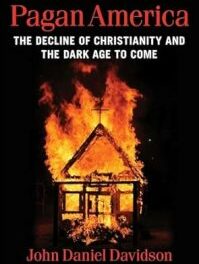We support our Publishers and Content Creators. You can view this story on their website by CLICKING HERE.
Nations as well as people, can be unsung heroes. They can suffer and be heroic in their suffering. Poland is such a nation. Hemmed in by neighbors that have all too often been enemies—and, as often as not, conquering enemies—Poland’s whole history has been shaped by suffering. It has been besieged and attacked by the Russians in the east and the Prussians in the west, and by the Swedes in the north and the Austrians in the south.
The Poles are an iron-forged people, shaped into a sword of faithful resilience in the heat of battle, caught between the anvil of warfare and the hammer of conquest. Furthermore, this faithful resilience has been shaped by the resilience of the Faith, the indomitable adherence of the Polish people to the Catholic Church which is the defining attribute of the nation itself. It is this fearless and courageous loyalty to Christ and His Church which has made Poland the heroic heart of Christian Europe. And yet, too few people know of the heroes that Poland has nurtured and nestled in her faithful breast. It is time, therefore, to celebrate the unsung heroes of this undersung nation.
Many examples of Poland’s fidelity and fortitude could be cited. It was Poland’s famous “winged hussars,” under the command of King John III Sobieski, which won the decisive victory in the Battle of Vienna in 1683, saving Europe from the Islamic Ottoman Empire. In the heroic defense of their homeland from the communists in the Polish-Bolshevik War of 1919-20, the Poles saved Europe from Marxist imperialism and totalitarianism, at least until the betrayal of Europe at the Yalta Conference in 1945, which handed half of Europe, including Poland, over to the terror of the Stalinist Soviet Union.
It was Poland, inspired by the Polish pope, St. John Paul II, which began the overthrow of the Soviet Union. Inspired by Pope John Paul’s visit to Poland and his call for courage, the Polish people began a campaign of civil resistance to communist rule which would spread to all the other Soviet-controlled countries of Europe, including, ultimately, Russia itself.
St. John Paul II needs no introduction, of course. He is indubitably the most famous Pole of the past century. His praises have been sung. He is a hero but hardly an unsung hero. The same could probably be said of King John III Sobieski. Most students of history will know of his role in saving Europe from Islamic conquest during the Battle of Vienna. And there are two other Polish heroes who will presumably need no introduction, both of whom are recently canonized saints of the Church: St. Faustina Kowalska and St. Maximilian Kolbe.
A holy hero and son of Poland who should need no introduction is Fr. Jerzy Popiełuszko. Recognized as a martyr by the Church and beatified in 2010, Fr. Popiełuszko showed great and indomitable courage in his close association with the anti-communist Solidarity trade union in Poland and was murdered by the communist secret police in 1984.
Another hero who will not be known to most people outside of the Polish-speaking world is the Jesuit Fr. Piotr Skarga. A leading figure of the Counter-Reformation in the late sixteenth century, during the time of the Polish-Lithuanian Commonwealth, Fr. Skarga’s eloquence was lauded in Poland. He was known as the Polish Bossuet, a reference to the renowned French bishop and theologian Jacques-Bénigne Bossuet, who is considered one of the greatest orators and literary stylists of the French language.
The fact that Fr. Skarga is considered comparable to Bossuet speaks for itself. He is best known for two books. His Lives of the Saints has remained perennially popular, whereas his political treatise, the Sejm Sermons, has earned him the title as the “patriotic seer” who, as a prophet of Poland’s doom, foresaw the partition of the Polish-Lithuanian commonwealth and the consequent ending, for over a century, of Polish national sovereignty.
Yet another unsung hero of this undersung country is St. Andrew Bobola, a martyr who is almost unknown outside of Poland. This Jesuit priest, known as the “hunter of souls” for his missionary zeal, was tortured by Cossacks in 1657 for refusing to renounce his Catholic faith and was subsequently killed. Pope Pius XI canonized St. Andrew Bobola in 1938; his successor, Pius XII, issued an encyclical in 1957, on the 300th anniversary of the saint’s martyrdom, in which the pope called St. Andrew Bobola “Christ’s unconquered athlete,” calling upon Catholics to imitate his faith and fortitude:
Let everyone, then, contemplate the strength of soul of St. Andrew Bobola, Martyr. Let them learn from his example, preserve intact his unconquered faith, and defend it by every means. Let them so imitate his apostolic zeal that they too will try, in every way they can, to strengthen the Kingdom of Christ on earth, and, so far as their state of life permits, to spread that Kingdom everywhere.
The pope then addressed the people of Poland directly, mindful that the Polish people were laboring under the tyranny of communism:
We direct Our words in a special way to those dwelling in Poland. For Andrew Bobola is their great glory, since he was born of that nation, and honored it not only by the splendor of so many virtues, but with the crimson of his martyrdom. Following his example, then, may they continue to hold fast to their ancestral faith in the face of all attacks. May they strive earnestly to live up to the Christian moral code. They should attentively consider this the greatest glory of their country: to imitate the unbreakable constancy of their ancestors and make Poland ever faithful, the outer bastion of Christianity.
The final unsung hero of Poland to be honored in this all-too-brief survey of that nation’s heroes is Captain Witold Pilecki, a Christian warrior of a very different ilk from St. Andrew Bobola. As a teenager, Captain Pilecki fought in the Polish-Bolshevik War, which began in the aftermath of World War I when communist troops, commanded by Vladimir Lenin, invaded Poland. The war ended in Polish victory, the communists being forced to withdraw from the Polish territory they’d invaded.
Twenty years later, Captain Pilecki fought to defend his country from another foreign invasion, this time from the Nazis in the west. As the Polish army was defeated, he was one of the co-founders of the resistance movement, the Secret Polish Army. With astonishing courage, Pilecki volunteered to allow himself to be captured in order to infiltrate Auschwitz concentration camp. From within the concentration camp, he organized a resistance movement involving hundreds of inmates and smuggled out evidence of Nazi atrocities to members of the Polish resistance who shared the information with the Western Allies.
Captain Pilecki escaped from Auschwitz in 1943 and fought in the Warsaw Uprising a year later. Taken prisoner, he spent the remainder of the war in a German prisoner-of-war camp. At the end of the war, he returned to Poland and became part of the resistance movement against the communist government that had been put in place by the Soviet Union. He was arrested by the secret police in 1947 and, following a show trial the following year, he was executed. His body was buried unceremoniously and his remains have never been found.
Having sung the praises of some of Poland’s unsung heroes, we’ll conclude with a song of praise to the nation itself.
Poland’s importance was encapsulated by G.K. Chesterton. “If Poland had not been born again,” he wrote in 1927, “all the Christian nations would have died.” Echoing this viewpoint, Hilaire Belloc wrote at the outbreak of World War II that “the test is Poland”: “The determination to save Poland, which is a determination not only to defeat Prussia but to oust the vile and murderous Communism of Moscow, is the moral condition of victory. If we waver we are lost.”
Shortly after his return from a visit to Poland, Chesterton gave a talk in London which was advertised as “What Poland Is.” He thought the title unfortunate. “[Y]ou can’t define a living thing,” he objected, “least of all such a living thing as Poland, one of the most living things in the world, because nothing can be so living as a thing which has risen from the dead.”
Although he couldn’t have known it, Chesterton was stating something more profound and more prophetic than he could have imagined. In the following decades, Poland would die twice more under both Nazi and Soviet occupation, only to rise again from both deaths.
Today, Poland is once more under attack, this time by the forces of globalism. These are powerful enemies. Perhaps they might succeed in killing Poland once again. If so, those with faith and fortitude will return once more to the catacombs to form the new resistance, fighting faithfully and prayerfully for the next resurrection.
Republished with gracious permission from Crisis Magazine (May 2024).
This essay is part of a series, Unsung Heroes of Christendom.
The Imaginative Conservative applies the principle of appreciation to the discussion of culture and politics—we approach dialogue with magnanimity rather than with mere civility. Will you help us remain a refreshing oasis in the increasingly contentious arena of modern discourse? Please consider donating now.
The featured image is courtesy of Pixabay.

 Conservative
Conservative  Search
Search Trending
Trending Current News
Current News 





